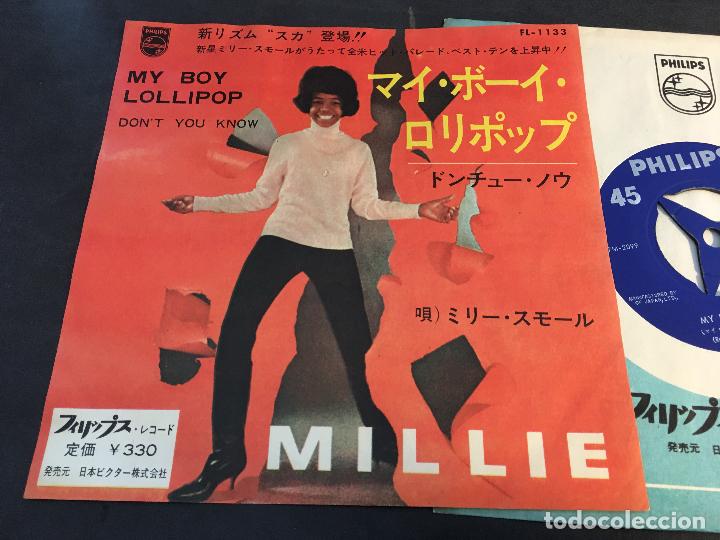

However, she kindly took the hard times, explaining, “This is the whole experience. When My Boy Lollipop was re-released in 1987 to mark the 25th anniversary of Island Records, the singer gave a rare interview to Thames TV, where she revealed that she had, at some point, gone broke and was sleeping hard in London. Later, she lived in Singapore and New Zealand before returning to London, where she focused on writing, painting and educating her daughter. Shortly after this single and the accompanying album Time Will Tell, Small stepped away from the music saying “it was the end of the dream and it was the right time”. Small’s lyrics, which captured the mood of Caribbean people in the UK, received an enthusiastic response when she played the song at the Caribbean Music Festival at Wembley Arena, a month after its release. Called Enoch Power, it was a provocative response to Enoch Powell’s “Rivers of Blood” inflammatory and anti-immigration discourse. However, it was the b side that attracted the most attention.

“My life seemed very normal to me – even though I was only 17, I became famous in its wake,” she told Express in 2016.Īfter leaving Island in 1970, she recorded for the legendary reggae label Trojan Records, where her first single was a cover of Nick Drake’s Mayfair. However, Small was never able to replicate the success of My Boy Lollipop, scoring only one additional hit, a sound called Sweet William.īut she continued to tour and record, and appeared frequently on 1960s pop shows like Juke Box Jury and Ready Steady Go.
MILLIE SMALL MY BOY LOLLIPOP ALBUM COVER FOR FREE
In late 1964, Small made her acting debut on an ITV special, The Rise and Fall of Nellie Brown.Ī cheerful and light musical, she interprets the singer as Selina, a young Jamaican woman fleeing her ordinary accommodation in Liverpool in search of her glamorous cousin from London, performed by Elisabeth Welch (you can still see her for free on the website from BFI). Small received a hero’s welcome on his return to Jamaica after the success of My Boy Lollipop “It’s the ska equivalent of Elvis’ Heartbreak Hotel or God Save The Queen of the Sex Pistols – the record that popularized a sound previously thought to be on the fringes of consciousness,” wrote music historian Laurence Cane. Released in February 1964, it made her an international star and helped popularize ska music worldwide. Small was enrolled at Italia Conti Stage School for speech and dance lessons and she toured the UK before cutting My Boy Lollipop with a group of session musicians in London (Small claimed that Rod Stewart had played the harmonica solo, but he denied being present during the ‘recording). There, she teamed up with reggae singer Roy Panton, and they became one of the most prolific duets on the island, marking a major success with We Meet.īlackwell became interested in the singer after releasing some of these records in the UK on her new label, Island, and brought her to London in 1963.

She was really special,” said Blackwell.īorn Millicent Small in Clarendon, south of Jamaica, she was one of seven brothers and five sisters raised on the sugar cane plantation where her father was a supervisor.Īt the age of 12, she won a talent competition at the Palladium Theater in Montego Bay and as a teenager, she recorded for the Studio One label of Sir Coxone Dodd in Kingston. “She was such a sweet person, really a sweet person.
MILLIE SMALL MY BOY LOLLIPOP ALBUM COVER TV
I went with her all over the world because each of the territories wanted her to introduce herself and do TV shows and the like, and it was simply incredible. “I would say she was the one who took international ska because it was her first record,” he told the Jamaica Observer. It was Blackwell who brought Small to London in 1963 and produced his version of My Boy Lollipop, highlighting his childish, high-pitched voice. Island Records founder Chris Blackwell announced her death and remembered her as “a sweet person … really special”. It remains one of the best-selling ska songs of all time, with more than seven million sales. The star was best known for her single My Boy Lollipop, which reached number two in the United States and the United Kingdom in 1964. Jamaican singer Millie Small died at the age of 72 from a stroke.


 0 kommentar(er)
0 kommentar(er)
